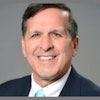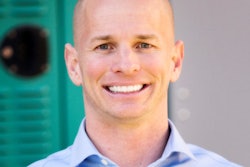
With 2020 in the rearview mirror, we asked eight members of the DIY Digital Dental Consulting team to share some of their best tips on cash flow and finances in the dental practice. Thoughts from four of them are presented in this article; four more will share their advice tomorrow.
Cash flow management, by Nancy Clark Crossin
 Nancy Clark Crossin.
Nancy Clark Crossin.When you think of cash flow, what's the first thing that comes to mind? Perhaps, "I want to keep more of my money," which is a very sensible and common response. How can you do that? My colleagues and I share our thoughts in this article as we skim the surface of our cash flow management system.
Begin with these strategies.
Outside of the practice, schedule a consultation with a dental certified public accountant (CPA). Dentists understand the necessity of utilizing specialists for optimal outcomes. Dental CPAs provide specialized strategic advice to help you keep more of your hard-earned money. A dental CPA provides industry-specific guidance based on industry benchmarks and analytics. You have nothing to lose except the consultation fee, if any. Why not get a second opinion, if for no other reason than the peace of mind it brings in confirming you are on the right track?
Inside the practice, review the following cash-flow touch points. Are you are sending the right message to your patients?
- Website (often the first contact)
- Payment method options
- Initial phone call verbal skills
- Unscheduled treatment protocol
- First and future appointments
- Financial presentation skills
- Insurance coding and narratives
- Analytics utilization
- Statements and accounts receivable (AR) follow-up system
- Inventory control
- Insurance, correct coding
- Co-pay accuracy
- Budget creation and adherence
- Direct deposit from insurance companies
- Annual fee reevaluation
- End-of-year "use it or lose it" communication
- Credit card fee negotiation every two years
- Overtime monitoring
- Net operating cash-flow report generation
Fee discussions, by Linda Miles
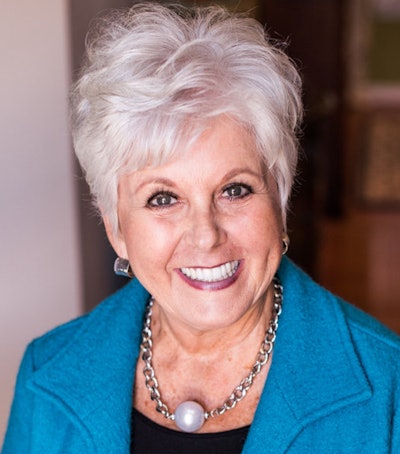 Linda Miles.
Linda Miles.There are two main points to remember when it comes to fee discussions with patients. First, the mindset of the dentist and team regarding money must be positive. Second, the quality of the verbal skills relating to the fees will make or break the acceptance rate.
Here are some thoughts to ponder:
- "Patients can't value what we don't." You must be as proud of your fees as you are of your dentistry.
- "Nothing good is cheap. Nothing cheap is good." Remember, patients complain about the fees regardless of the amount.
Why do a large percentage of big cases not appoint? The problem is a lack of proper verbal skills at fee discussion and zero follow-up two days later.
As an example, say a patient hasn't been to the dentist for a while. He realizes he needs restorative help, but he thinks it will cost a few hundred dollars. However, chances are the treatment plan will cost several thousands of dollars.
The fee is presented by the treatment coordinator or financial coordinator. "Your total charge will be $6,425," she says. After the patient catches his breath, he says, "Oh, it's been a while, and I knew I needed some work done -- but I had no idea it would be that much! I need to talk it over with my spouse." The typical response might be, "Just give us a call when you are ready." Sadly, you never see that patient again, unless he decides to come back for an emergency.
Let's go over the verbal transactions in the above scenario.
Never use retail words in a professional setting, such as charge, cost, etc. These only make patients think about money. Always use the words "fee" or "investment."
Next, the patient refers to his needed treatment as "work." That's because dental practices refer to treatment as work. It should always be dentistry or treatment, never work.
The verbiage regarding the fee should be, "Mr. Baker, your total investment as far as time will be a longer appointment, then two or three shorter visits. Your total investment as far as the fee will be $6,425."
After the patient states he had no idea it would be that much and that he must go over it with his wife, the best response would be, "Mr. Baker, if I were making this type of investment in my total health, I'd certainly need to discuss it with my spouse as well. Do I have your permission to call you in two days after you have talked to her? Also, remind your wife that our practice has a fee plan that allows patients to make smaller monthly payments over time with zero interest. We want all of our patients to know that ideal dentistry is affordable to everyone in our community." Then, you must follow up in two days.
Unscheduled treatment, by Theresa Narantic
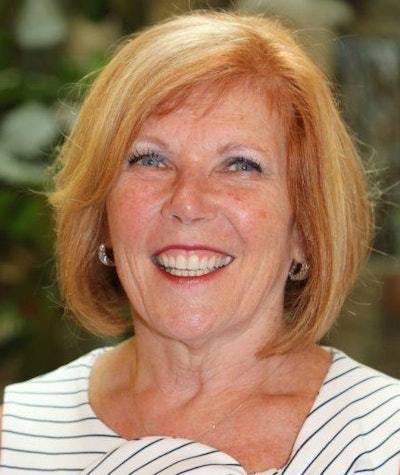 Theresa Narantic.
Theresa Narantic.Nothing is better than when a doctor delivers treatment options, the dental team assists in educating and motivating the patient to make the best choice for his or her present and long-term oral health, and the patient says yes to the diagnosed treatment. This results in a dental team happy dance!
In coaching dental teams, I use the simple triangular model of yes, as I believe there are parts to treatment acceptance.
After the doctor delivers his or her diagnosis, the patient is asked, "Do you understand the treatment and what will happen if you move forward, and also what will happen if you choose not to accept the treatment?"
The second yes happens when the hygienist or dental assistant answers all of the patient's clinical questions and follows up with, "Do you understand why Dr. Smith feels that this is the best treatment for you?" This team member will continue engaging in conversation until all of the questions are answered. Inevitably, a question regarding finances or insurance will arise. At that point, recognize the query and explain that you are simply answering clinical questions and that your expert colleague will discuss all of the financial questions at the conclusion of your time together. The last question in the clinical area is, "If we can make this treatment affordable, are you ready to get started on your treatment?"
The final point of the triangle is where we discuss financial options with the patient. "I am so pleased that you see the value of the treatment Dr. Smith has explained. Our job now is to simply figure out what option fits best into your budget."
In an ideal situation, every patient, every appointment, says, "Awesome. Can we get started on that right now, and I will just pay you today for the entire treatment in cash?"
If that is not the case, no worries. Here is your easy solution.
First, by provider (if you have more than one doctor in your practice), print out your unscheduled treatment for the prior two-week period. Then call those patients and ask how they are. If you know something personal from your conversation with them in the office, bring it up again.
Let them know that "Dr. Smith was just asking about you, and she was concerned because there was no appointment reserved for you. She asked me to call to find out what other information you might need to assist in making the best decision regarding your choices of treatment."
Answer any questions they may have, then listen.
Speak in terms of value. Value is personal. The value rarely is monetary. Discuss long-term benefits and share systemic health links.
If the answer is no, it means "no for right now." Provide alternative solutions, such as phasing treatment or delayed treatment, and mention creative financial options such as CareCredit, using a home equity loan, or the membership plans in your office, if that is an option.
We don't want our patients to feel pressured, but we want them to know that we really are concerned about their overall health. If you do not come up with a resolution right away, ask patients when you can call them again. When you do call, you can say, for example, "When we talked on October 11, you asked me to give you a call in four weeks, and I am doing just that."
The biggest reason we do not follow up with unscheduled treatment is that we try to eat the elephant whole! The job is overwhelming and unsatisfying if it is not completed incrementally; we don't dedicate time to doing the task when it feels overwhelming, and we wait too long to make the calls. Nothing says we care more than calling a patient nine months after treatment was delivered and saying, "Dr. Smith is concerned."
When we break it down into manageable pieces, we get desired results. It is still fresh in the patients' minds. They know we care, and we reiterate the benefit to them. Making several calls each week with true empathy beats leaving endless messages and sending out bundles of letters at year-end. For this portion of our business, quality trumps quantity. Above all, you must have an unscheduled treatment system for efficacy. I would love to hear your results!
The check is in the mail, by Theresa Parker Sheppard, RDA
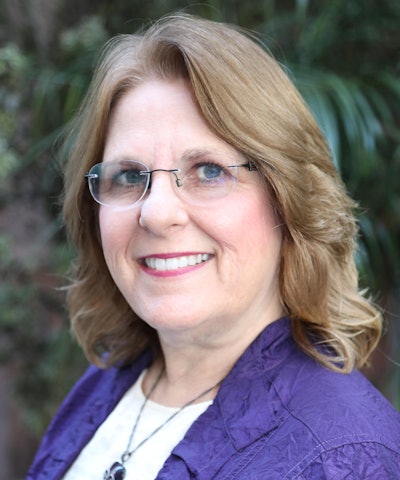 Theresa Parker Sheppard, RDA.
Theresa Parker Sheppard, RDA.You have just finished a prep on an all-porcelain crown on #6. The patient is dismissed and walked up to the admin area. The next appointment is made, and the patient is asked for the co-pay. The patient says, "I don't have my checkbook. Can you send me a statement?"
Sending statements has gone by the way of the pegboard and ledger, yet there are many offices that still send dozens of statements per month, causing extreme damage to cash flow. We can be much more efficient!
Accepting credit and debit cards is a great way to improve cash flow. However, technology has given us many options, such as keeping a patient credit or debit card on file in a security vault or having payment portals on your website, virtual terminals, or emails sent with payment links.
These methods speed up payments but, as providers, we are bound by strict federal HIPAA regulations to ensure that our patients' information is protected. One way to protect this information is validated point-to-point encryption. When a card is swiped or entered, the number is encrypted immediately and remains that way throughout the payment gateway. This eliminates the need for providers to write down a patient's card number to "keep on file."
Securing patient data, whether the information is clinical or financial, is the law -- but HIPAA breaches are also costly to your wallet as well as your reputation.
The comments and observations expressed herein do not necessarily reflect the opinions of DrBicuspid.com, nor should they be construed as an endorsement or admonishment of any particular idea, vendor, or organization.



